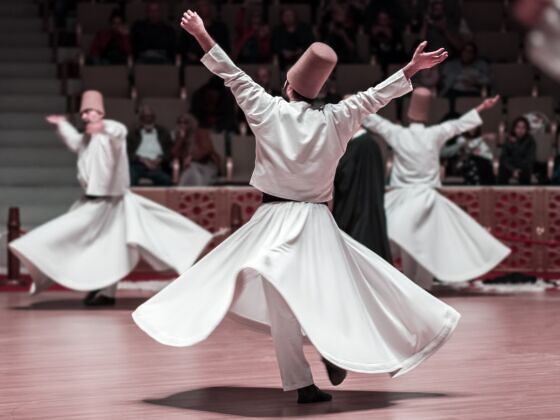KONYA WAS FREAKING me out, and that made me feel a little guilty, a little shallow, a little spiritually bankrupt.
I was in the famously devout, conservative city to visit the Mevlana Museum. Mevlana (master) Celalledin Rumi was the 13th century founder of the Mevlevi order of dervishes popularly known as whirling dervishes for their practice of spinning in a ritual to connect with their divinity. Me? I was uptight.
